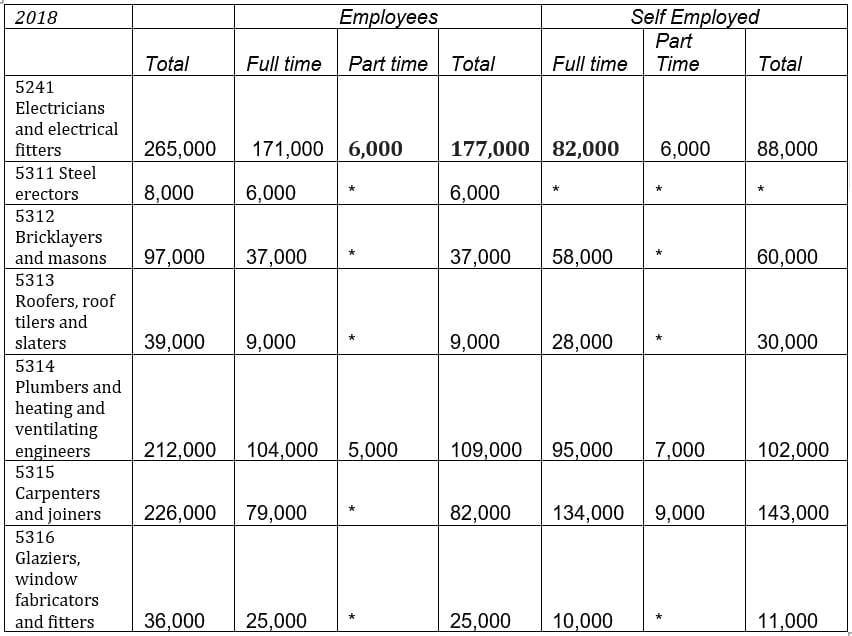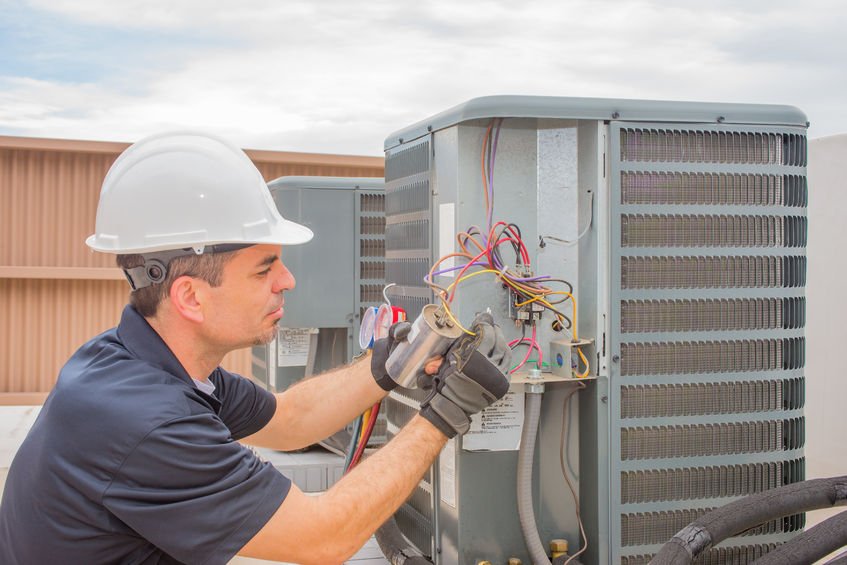What are HVAC and the Trades?
There are many different occupations that fall into the HVAC and Trades category: Heating, Ventilation, Air Conditioning, Plumbers, Electricians, Roofers, Carpenters and many, many more.
The May 2020 National Occupational Employment and Wage Estimates for the United States has 656,5100 registered Electricians.¹ They also state the number of Heating, Air Conditioning, and Refrigeration Mechanics and Installers as 344,020,² however, these figures don’t include self-employed workers, so the real numbers are much higher.
HVAC lone working in North America
According to hvac.com there are over 118,000 HVAC companies registered in the U.S at present³ and the 2020 statistics showed 25,674 companies registered in Canada.⁴ These figures show that there are currently millions of people working in trades throughout North America.
HVAC lone working in the United Kingdom
Although the population sizes differ hugely, this is a field that is well represented in the United Kingdom as well. The recent Labour Force Survey from April-June of 2018 showed the following employment figures:

* Sample size too small for reliable estimate. Source: ONS – Labour Force Survey April-June 2018
One aspect of working in the trades is that workers are frequently required to work on their own. Unless it is a large job you don’t usually get two electricians working together or two plumbers. They go to a location, complete the job and leave, alone. This means a large majority of this industry’s workforce are lone workers.
Lone Worker Legislation for HVAC and the Trades
Under the legislation of the United States, Canada and the United Kingdom all companies with lone workers are required to have a communications system in place. Companies need to have frequent verbal confirmation that lone workers are safe and well. The HSE (U.K), OSHA (U.S) and CCOHS (Canada) recommend the implementation of monitoring procedures that include check-ins at pre-agreed intervals with workers.
How Ok Alone can help HVAC and the Trades
Ok Alone, the lone worker safety app, allows workers to check in at regular intervals and request help if they need it. The system has GPS capabilities that can locate a worker if they are out on a job and fail to check-in. Using Ok Alone means that someone else will be notified if a worker doesn’t check-in or requests immediate assistance and that person can then act to get help.
HVAC and the High Risk Feature
Other features of Ok Alone include the ‘High Risk’ function where workers can change the frequency of their check-in depending on their circumstances. The check-in can be set to every 10 minutes if required. Using this feature also alerts the worker’s company that they are entering an area they do not feel safe in. This function allows the worker to inform their company of their new situation without having to phone in.
HVAC and the Man Down Function
The ‘Man Down’ (worker down) function notifies a worker’s office if there has been no movement within a set amount of time (3 minutes – 1 hour). If no movement is detected the phone will sound an alarm alerting the worker that there has been no movement. If this alert is not responded to by the worker, it will be escalated to the worker’s allocated monitor and they will contact the worker. The helpful reminder/alarm to the worker first means there will be less false alarms sent to either the monitor or the call centre.
For a free trial of the Ok Alone lone worker solution go to free trial page.
1 – https://www.bls.gov/oes/current/oes472111.htm
2 – https://www.bls.gov/oes/2020/may/oes499021.htm

As an expert in lone worker content management, I possess an extensive knowledge base and experience in the area of lone working and safety monitoring. My expertise in this field encompasses a wide range of areas, including risk assessment, training, communication, and technology. I have a deep understanding of the unique risks associated with lone workers and have researched and written many projects and articles to educate people in how to mitigate these risks.
Throughout my time with Ok Alone, I have kept up to date with technological developments, legislative changes and regulations that have been introduced to help organizations ensure the safety of their lone workers.

